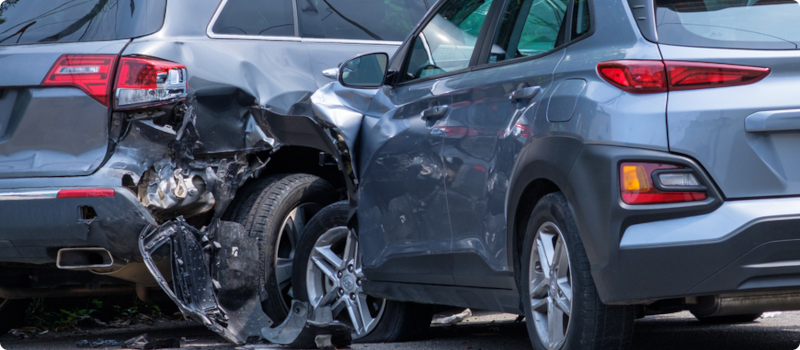Comprehensive vs. collision insurance
Updated November 5, 2017 . AmFam Team
Updated November 5, 2017 . AmFam Team
Do you get comprehensive and collision insurance confused? Don’t worry — many people do. Both comprehensive and collision are types of car insurance that cover damage to your vehicle. But there are some important differences to understand. Let’s take a look at how these coverages help protect your vehicle from the unexpected.

While both coverages help you when your vehicle is damaged the key is understanding how they cover different situations. Comprehensive steps in when your car is damaged from a storm, a theft, hits an animal and other incidents that are beyond your control and typically don’t involve another vehicle. Collision insurance is for those times when your vehicle hits something, like another car or an object.
In a nutshell, comprehensive is used when something other than a car damages your car, while collision is your go-to when your car hits something. Of course there’s more to it than that, so let’s take a closer look at the differences between comprehensive and collision insurance.
Comprehensive car insurance pays for damage caused by accidents that don’t involve colliding with another vehicle or object. For example, comprehensive covers you from:
Comprehensive insurance isn’t required by any state, but it typically is required by your lender if you have a loan or a lease.

On the other hand, collision car insurance helps cover damage to your vehicle if it was in an accident with another vehicle or an object. It also kicks in whether you were at-fault or not. Here are some example of how collision insurance protects your vehicle:
In these situations, collision coverage will help with the out-of-pocket expenses of repairing or replacing your car. It doesn’t cover medical expenses or damage to other vehicles. That’s what medical expense coverage and damage liability coverage are for.
Like comprehensive insurance, collision isn’t required by any state but it’s often required by the lender if you have a lease or loan.
Our at-a-glance chart demonstrates when collision insurance kicks in or your comprehensive insurance plays a part.
Comprehensive car insurance | Collision car insurance |
|---|---|
A storm blows a tree onto your car | You drive into a tree |
Your car is stolen or vandalized | You are in a collision with another vehicle |
A fire or natural disaster damages your vehicle | Your car is in a rollover accident |
An animal collides with your car | Hitting a pothole and it damages your vehicle |
No, you don’t need both. However, it may be best to select both, since they work hand in hand to protect your vehicle from damage. But, there may be some situations where you’d want to choose one or the other. To determine if you need collision or comprehensive coverage, consider the following:
Vehicle’s value. If you have a new, expensive vehicle, both types of coverage are a great idea. But if you’re driving an old vehicle that’s not worth much, for instance if your deductible costs more than your car is worth, then you may not need both coverages and might be better off saving to buy a new vehicle.
Vehicle use. A car that’s rarely used and spends most of its time safely tucked in a garage may not need comprehensive or collision coverage. Or, if your vehicle is never driven but sits outside you may want comprehensive coverage and not collision.
Your financial position. Can you afford to fix your vehicle or buy a new one if there is damage? Or would you rather have peace of mind from collision and comprehensive coverage no matter what?
Feeling more confident about comprehensive and collision coverage? Now that you know the differences between the two, connect with your American Family Insurance agent to ensure you have these coverages in place and for peace of mind on the road.
This information represents only a brief description of coverages, is not part of your policy, and is not a promise or guarantee of coverage. If there is any conflict between this information and your policy, the provisions of the policy will prevail. Insurance policy terms and conditions may apply. Exclusions may apply to policies, endorsements, or riders. Coverage may vary by state and may be subject to change. Some products are not available in every state. Please read your policy and contact your agent for assistance.